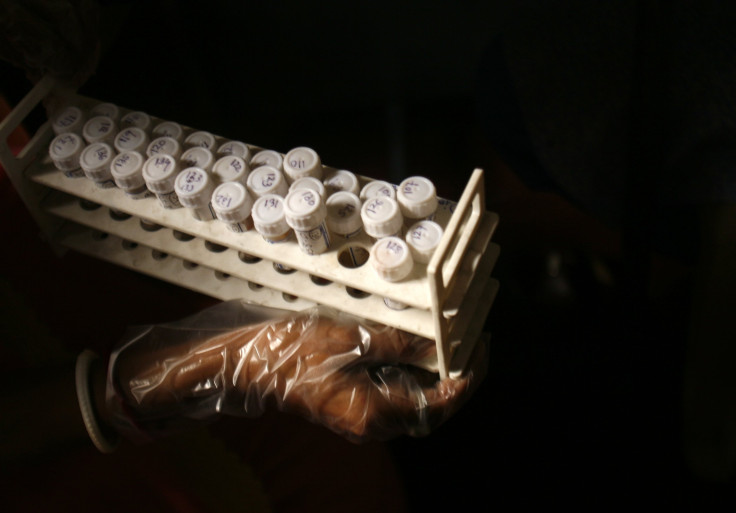HIV Diagnosis Made Fast And Affordable With $34 Smartphone Device

A team of researchers from Columbia University in New York have developed a device that can be attached to a smartphone and detect HIV and syphilis in less than 15 minutes. According to the researchers, the device, which is estimated to have a manufacturing cost of just $34, has the potential to “transform how health care services are delivered around the world.”
During test runs conducted by health care workers on patients in the East African nation of Rwanda, where over 200,000 people are believed to be infected with HIV, the researchers found that the mobile tool, which can detect HIV with just a finger prick of blood, had accuracy levels comparable to the currently used Enzyme-Linked Immunosorbent Assay (ELISA) test.
The device can be attached to the audio jack of a smartphone and pairs cassettes of pre-loaded chemical reagents with the phone. Instead of a power-consuming electrical pump, a “one-push vacuum” -- much like the bulb on a conventional blood pressure cuff -- is used to fill the cassette's chamber with blood sample. The phone's audio jack is used to power the device and for data transmission.
According to the study published Wednesday in the journal Science Translational Medicine, for HIV, the mobile device was found to have a sensitivity of 92 percent to 100 percent and a specificity of 79 percent to 100 percent. Sensitivity is a measurement of patients correctly identified, while specificity measures how well the test did in ruling out people who weren't infected.
The device also showed a 70 percent to 80 percent sensitivity and specificity for syphilis, which the researchers claimed could reduce deaths tenfold.
“Our work shows that a full laboratory-quality immunoassay can be run on a smartphone accessory,” Samuel Sia, an associate professor of biomedical engineering at the Columbia University, said, in a statement released Wednesday. This, he added, “can make certain lab-based diagnostics accessible to almost any population with access to smartphones.”
Moreover, the device costs $34 to make, much lower than the over $18,000 required to manufacture an ELISA equipment, the researchers said, in the statement. The low cost of the device could make it affordable for people living in the impoverished Sub-Saharan African nations, which account for nearly 70 percent of the global HIV infections.
© Copyright IBTimes 2024. All rights reserved.






















